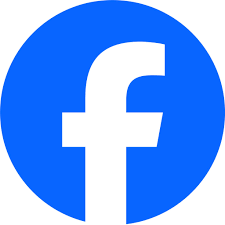Introduction
Facebook, launched in 2004 by Mark Zuckerberg and his college roommates at Harvard University, has profoundly transformed the way we communicate, share, and engage socially. With over 2.9 billion monthly active users as of 2023, it is the most widely used social media platform in the world, reshaping personal relationships, business marketing, and global communications. This article aims to offer an in-depth exploration of Facebook’s history, its operational dynamics, features, societal implications, controversies, and future prospects.
Chapter 1: The Origins of Facebook
1.1 The Founding Story
The story of Facebook begins in a Harvard dorm room, where Mark Zuckerberg, Eduardo Saverin, Andrew McCollum, Dustin Moskovitz, and Chris Hughes launched “Thefacebook.” Initially aimed exclusively at Harvard students, the platform quickly gained popularity across Ivy League schools and then to universities nationwide.
The motivation behind creating Thefacebook was simple: to connect students and provide an online space where they could share their interests and activities. The early interface allowed users to create a basic profile with their photos, interests, and personal details, fostering an environment for social interaction.
1.2 Rapid Expansion
In 2005, Zuckerberg dropped the “The” from Thefacebook, and by the next year, the site began to expand to high school students and eventually the general public. By 2006, Facebook opened its doors to anyone over the age of 13 with a valid email address, surpassing competitors like MySpace and Friendster.
1.3 Financial Backing and IPO
As Facebook grew, it attracted significant venture capital investments, enabling the company to develop its infrastructure and introduce new features. In 2012, Facebook went public with an initial public offering (IPO) that valued the company at $104 billion, making it one of the largest tech IPOs in history.
Chapter 2: Facebook’s Core Features
2.1 User Profiles and News Feed
The foundation of Facebook’s success lies in its user-centric design. Profiles are customizable, allowing users to share their life events, connect with friends, and express themselves through posts, images, and videos.
The News Feed, launched in 2006, fundamentally changed how users interacted with the platform. It aggregates updates from friends and pages in real-time, creating a dynamic flow of content that keeps users engaged and coming back for more.
2.2 The Like Button and Engagement Metrics
Introduced in 2009, the “Like” button allowed users to express approval for posts without the need for comments. This simple action has since evolved into various forms of engagement, including reactions (like, love, haha, wow, sad, angry) introduced in 2016.
2.3 Groups and Pages
Facebook Groups enable users to join communities based on shared interests or demographics, fostering deeper connections. Similarly, Facebook Pages provide a platform for businesses, celebrities, and organizations to build a fan base and interact with followers.
2.4 Events and Marketplace
Events allow users to create and invite friends to gatherings, from casual meet-ups to major events. The Marketplace feature, launched in 2016, facilitates peer-to-peer buying and selling, positioning Facebook as a key player in the e-commerce landscape.
Chapter 3: Facebook’s Role in Society
3.1 The Democratization of Information
Facebook has become a crucial channel for news distribution and information sharing. It provides a platform for citizens to voice their opinions, share news stories, and report on events, democratizing information dissemination.
3.2 Social Movements and Activism
The platform has played a significant role in various social movements around the world. For instance, the #BlackLivesMatter movement and global climate strikes have utilized Facebook to mobilize supporters and spread awareness rapidly.
3.3 The Impact on Relationships
While Facebook has enabled users to maintain long-distance friendships and reconnect with old acquaintances, it has also been associated with negative mental health outcomes. Studies suggest a correlation between Facebook use and issues like anxiety, depression, and feelings of loneliness.
Chapter 4: Business Implications of Facebook
4.1 Advertising and Marketing
Facebook’s advertising model, which allows businesses to target specific demographics based on user data, has become a gold standard for online marketing. It offers sophisticated tools for creating ads, analyzing their effectiveness, and adjusting strategies in real time.
4.2 Brand Engagement and Reach
Brands can engage with consumers on a more personal level through Facebook, fostering brand loyalty and community building. The platform allows businesses to showcase their products, share user-generated content, and respond to customer inquiries.
4.3 Challenges for Businesses
Despite its advantages, businesses face challenges on Facebook, including algorithm changes that affect post visibility and increasing competition for consumer attention. Companies must adapt their strategies continuously to leverage Facebook effectively for marketing.
Chapter 5: Controversies and Criticisms
5.1 Privacy Concerns
One of the most significant controversies surrounding Facebook is privacy. Reports of data breaches, misuse of personal information, and scandals like the Cambridge Analytica incident in 2018 raised serious questions about user data security and consent.
5.2 Spread of Misinformation
The platform has been criticized for becoming a breeding ground for misinformation and fake news, particularly around elections and health-related topics. Facebook has since introduced fact-checking initiatives and content moderation policies to address this issue.
5.3 Mental Health Implications
Critics argue that excessive use of Facebook can lead to negative mental health outcomes. Studies have linked social media use to higher rates of anxiety, depression, and body image issues, prompting calls for users to be more mindful of their consumption.
Chapter 6: Facebook in the Technological Landscape
6.1 Competitors and Market Position
While Facebook remains the undisputed leader among social media platforms, it faces growing competition from TikTok, Snapchat, and Twitter. These platforms leverage unique features and youthful demographics, challenging Facebook’s dominance, particularly among younger users.
6.2 Innovations and Feature Additions
To maintain its competitive edge, Facebook continually innovates by introducing new features like Stories, Instagram Reels, and Live videos. These additions aim to keep users engaged and retain their interest in the continually evolving landscape of social media.
6.3 Acquisitions and Expanding Ecosystem
Facebook’s acquisition strategy, which includes buying Instagram and WhatsApp, has allowed the company to diversify its offerings and integrate multiple platforms under one umbrella. This has facilitated greater user engagement and advertising opportunities across its ecosystem.
Chapter 7: The Future of Facebook
7.1 The Vision of the Metaverse
Looking ahead, Facebook has expressed a keen interest in developing the metaverse, a virtual reality space where users can interact in real-time. This vision encompasses social interactions, professional environments, and virtual commerce, promising to create an entirely new dimension of online engagement.
7.2 Privacy and User Experience Enhancements
As scrutiny continues regarding privacy and data security, Facebook will need to focus on enhancing user trust. This may include implementing stricter data protection measures and offering users greater control over their privacy settings.
7.3 Global Reach and Accessibility
With ongoing efforts to connect underserved populations through initiatives like Internet.org, Facebook will continue to expand its global reach. Efforts to provide better accessibility features will ensure that users with disabilities can engage fully with the platform.
Conclusion
Facebook has evolved from a college project into a global phenomenon that shapes our digital lives. Its multifaceted impact on society, business, and technology is profound and speaks to its role as a catalyst for change in human interaction. As it navigates the challenges of privacy, misinformation, and competition, its future remains bright, with the potential for significant innovations that may redefine social media and online engagement.
With both supporters and critics, Facebook’s story is not merely one of technological advancement but a reflection of the complexities of contemporary society. Understanding this narrative is essential for navigating our increasingly interconnected world, and as Facebook continues to evolve, so too will the conversations surrounding its influence and implications for the future.



